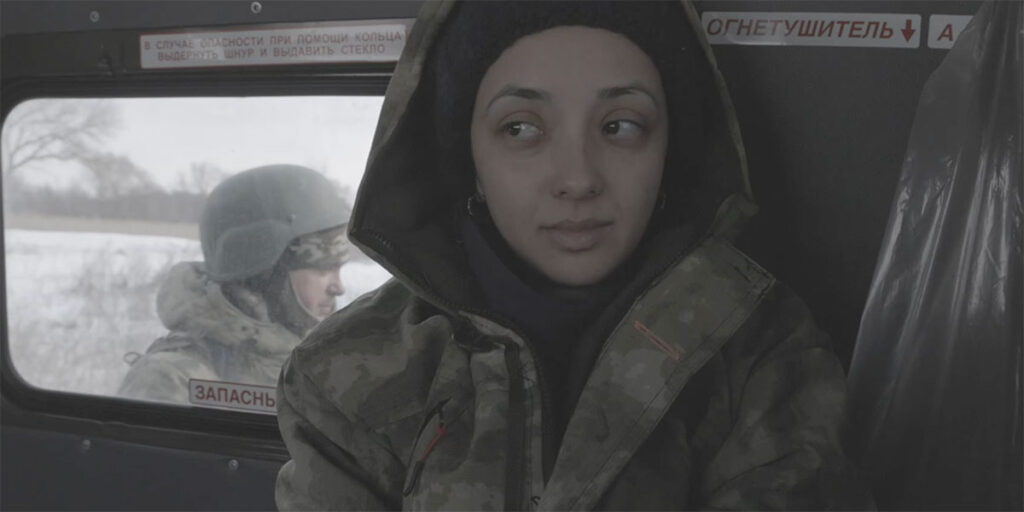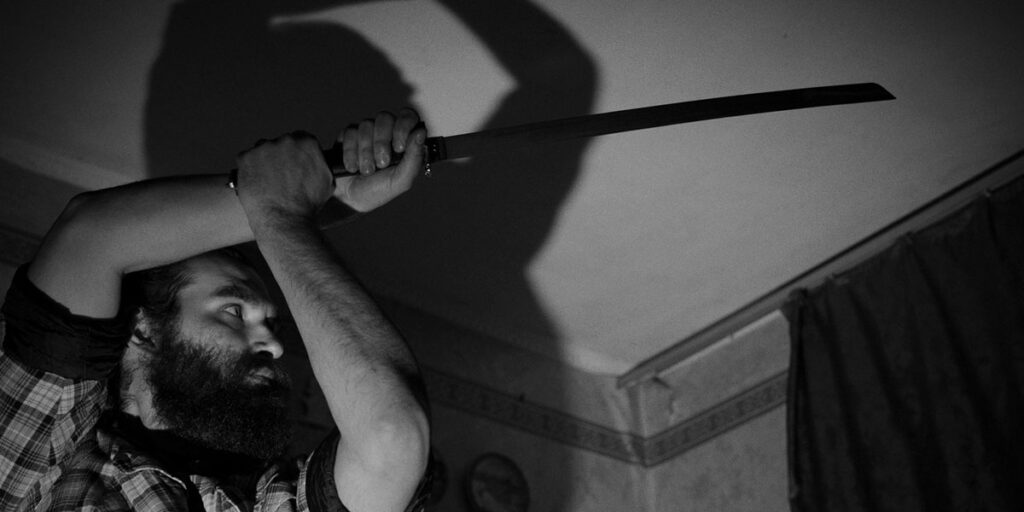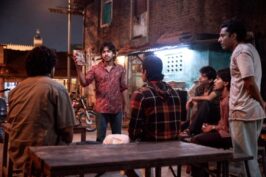The TIFF Docs programme is one I often support each year I attend the festival. Documentaries have a way to get us to learn and discuss topics that can be sensitive, infuriating and at times quite difficult yet necessary to address.
At TIFF this year, I watched two documentaries covering the war in Ukraine. Below is a brief summary of each and some thoughts I would like to share with you.
Firstly, I want to be very clear that I stand in solidarity with the people of Ukraine.

RUSSIANS AT WAR
Dir. Anastasia Trofimova
In the film, we Russian Canadian filmmaker Anastasia Trofimova join Russian soldiers as they place themselves in a battle for reasons that are unclear and misguided as each gruelling day, each confusing command, each casualty makes everyone question ‘why this war?’.
In her director’s statement, Trofimova explains she “set out to make [this film] as a desperate search to understand my birth country and my people… I focused my lens on those most of the world had not seen before – Russian soldiers. My hope is that their stories add to a deeper understanding of this senseless and traumatic war. While we’ve made an anti-war film, I understand that, within the current geopolitical context, our film might be subject to attacks and agendas beyond its scope.”
In watching this film, it became apparent that this type of war is what happens when there is no access to free press and information as we know to be the case in Russia. No one can put into words why the war is necessary in a way that makes sense. There is a point in the film when one person says, “it is slavs killing slavs.” No killing of fellow humans is justified when we, at our most basic, comprehend that average citizens always lose when governments take to arms for the sake of power over ‘the other.’

VIKTOR
Dir. Olivier Sarbil
A stylized reportage with cinematic subjectivity, this powerful documentary from filmmaker and veteran war photographer Olivier Sarbil offers a personal perspective on the Russian invasion of Ukraine. Filmed over two years, the film includes Ukrainian-speaking and Russian-speaking Ukrainians, as well as people from the Deaf community.
This film is gripping in the way it is crafted. It is an audiovisual experience designed to match that of its subject, Viktor who is deaf. As I sat watching this film, I appreciated Viktor’s perspective as well. He is eager to find his purpose, no matter how dangerous. As Viktor explains in the film, silence is not the absence of something. It is the presence of the self. A truly impactful film.
In my research for this film, I read a statement by the filmmaker where he shares his hopes for this film are that it “transcends language barriers and sparks conversations worldwide about our shared humanity.”
Here, I share some thoughts on each of the films so that you can be aware of the types of films aiming to discuss the same topic from very different points of view.
Ultimately, I understand the protests against Russians at War. A part of me also wishes there had been a focus on films like Viktor, which give us a completely different perspective on this war. All in all, for those of us with access to information and films like these two, I encourage you to see them and form your own opinions and conclusions.






